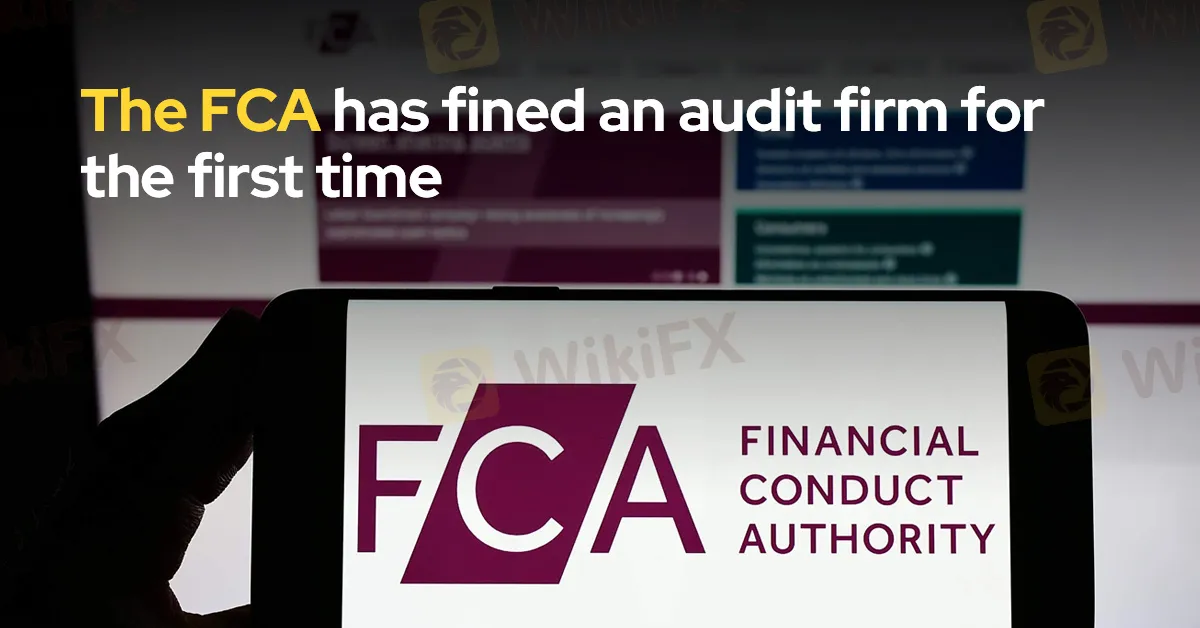简体中文
繁體中文
English
Pусский
日本語
ภาษาไทย
Tiếng Việt
Bahasa Indonesia
Español
हिन्दी
Filippiiniläinen
Français
Deutsch
Português
Türkçe
한국어
العربية
The FCA has fined an audit firm for the first time
Abstract:The Financial Conduct Authority (FCA) has imposed a fine on PricewaterhouseCoopers LLP (PwC) for the first time, marking a significant development in the regulation of audit firms. The fine was issued due to PwC's failure to report suspicions that London Capital & Finance plc (LCF) might be involved in fraudulent activity during their audit of the company's 2016 accounts.

The Financial Conduct Authority (FCA) has imposed a fine on PricewaterhouseCoopers LLP (PwC) for the first time, marking a significant development in the regulation of audit firms. The fine was issued due to PwC's failure to report suspicions that London Capital & Finance plc (LCF) might be involved in fraudulent activity during their audit of the company's 2016 accounts.
The audit of LCF in 2016 presented numerous challenges for PwC. A senior individual at LCF exhibited aggressive behavior toward the auditors, and the firm provided inaccurate and misleading information throughout the process. These issues made the audit exceptionally complex, leading to delays and raising concerns within PwC about the legitimacy of LCF's operations.
Despite these red flags, PwC ultimately concluded that LCF's 2016 financial statements were accurate. However, PwC had developed suspicions during the audit that LCF might be involved in fraudulent activities—a concern that they were legally obligated to report to the FCA. PwC's failure to report these suspicions, whether they persisted or not, is the basis for the FCA's fine.
LCF's downfall began in January 2019 when the FCA ordered the company to retract misleading promotional material related to the sale of mini-bonds, a move that led to the firm entering administration. The promotional material had misled thousands of investors by not fully disclosing the risks associated with the products. The Serious Fraud Office (SFO) is currently conducting a criminal investigation into the collapse of LCF, further underscoring the gravity of the situation.
Therese Chambers, Joint Executive Director of Enforcement and Market Oversight at the FCA, emphasized the critical role auditors play in maintaining market integrity. She stated, “Auditors have a central role to play in keeping our markets clean. They have privileged access to information and they are required by law to report suspicions of fraud to the FCA. There were several red flags that led PwC to suspect fraud. They should have acted on them immediately. Their failure to do so deprived the FCA of potentially vital information.”
This unprecedented fine serves as a stern reminder to audit firms of their responsibilities in identifying and reporting potential fraud, reinforcing the FCA's commitment to safeguarding the integrity of the financial markets.

Disclaimer:
The views in this article only represent the author's personal views, and do not constitute investment advice on this platform. This platform does not guarantee the accuracy, completeness and timeliness of the information in the article, and will not be liable for any loss caused by the use of or reliance on the information in the article.
Read more

Geopolitical Events: What They Are & Their Impact?
You've heard many times that geopolitical events have a significant impact on the Forex market. But do you know what geopolitical events are and how they affect the FX market? Let us learn about it today.

Why Do You Feel Scared During Trade Execution?
Trade execution is a pivotal moment for traders. It is when analysis turns into action, and potential profits or losses become reality. However, for many traders, this moment is accompanied by fear. Why does this happen, and how can you address it?

WikiEXPO Global Expert Interview: Simone Martin—— Exploring Financial Regulation Change
In the midst of financial innovation and regulation, WikiGlobal, the organizer of WikiEXPO, stays abreast of industry trends and conducts a series of insightful and distinctive interviews on pivotal topics. We are delighted to have the privilege of inviting Simone Martin for an in-depth conversation this time.

Doo Financial Expands Reach with Indonesian Regulatory Licenses
PT. Doo Financial Futures, a subsidiary of the global financial services brand Doo Group, has secured regulatory approval from Indonesia’s Badan Pengawas Perdagangan Berjangka Komoditi (BAPPEBTI).
WikiFX Broker
Latest News
Geopolitical Events: What They Are & Their Impact?
Volkswagen agrees deal to avoid Germany plant closures
Top 10 Trading Indicators Every Forex Trader Should Know
WikiEXPO Global Expert Interview: Simone Martin—— Exploring Financial Regulation Change
TradingView Launches Liquidity Analysis Tool DEX Screener
MultiBank Group Wins Big at Traders Fair Hong Kong 2024
'Young investors make investment decisions impulsively to keep up with current trends' FCA Reveals
Why Do You Feel Scared During Trade Execution?
CySEC Settles Compliance Case with Fxview Operator Charlgate Ltd
Scope Markets Review: Trustworthy or Risky?
Currency Calculator


